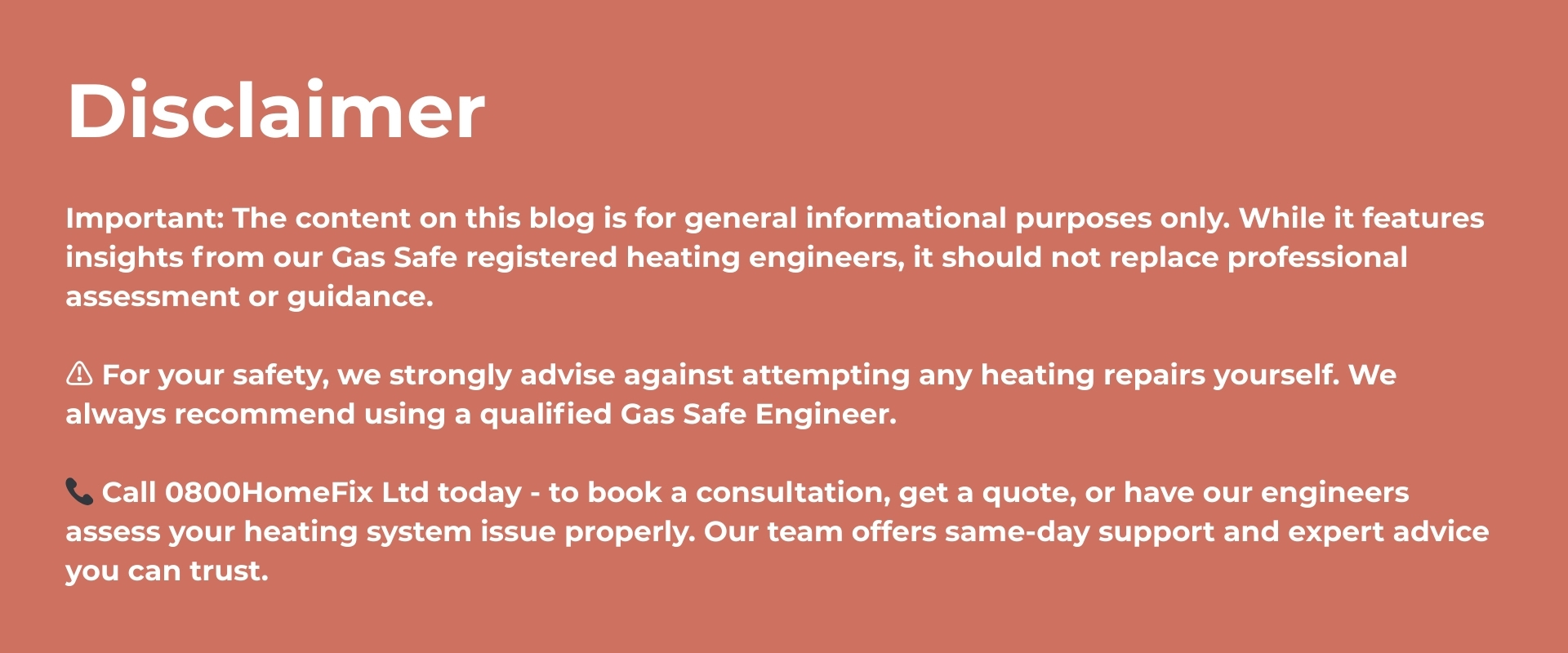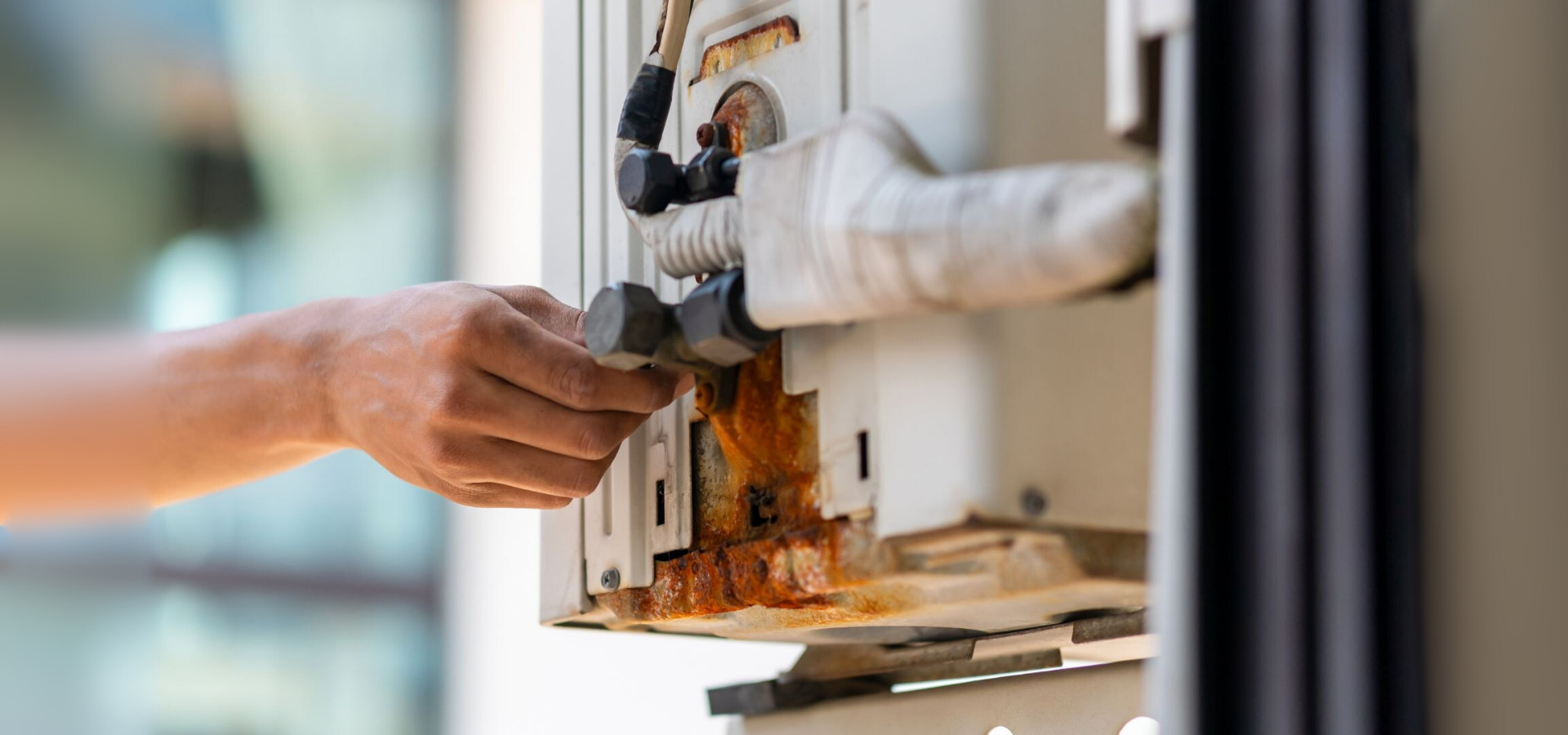

A noisy boiler can be worrying for any homeowner. Boilers are designed to operate quietly in the background, providing reliable heating and hot water. When unusual sounds like banging, rattling, or whistling occur, it can signal a problem within the system.
While not all noises are serious, they should never be ignored. A loud banging sound might be something as simple as trapped air, but it could also point to dangerous issues like overheating, high pressure, or a failing component. Knowing what causes these noises, and when to call a professional, is essential for keeping your heating safe and efficient.
This guide explains the most common causes of noisy boilers, the types of sounds to listen for, and the solutions that restore peace and comfort to your home.
Understanding Why Boilers Become Noisy
Boilers work by heating water and circulating it through pipes and radiators. The boiler is a key component of the central heating system, which distributes heat throughout your home. This process involves pumps, valves, and heat exchangers – all of which can generate noise if they develop faults.
Common causes of noisy operation within the boiler system include limescale build-up, trapped air, incorrect boiler pressure, or loose components. In older systems, corrosion and sludge can also contribute to strange sounds.
While some strange noises are more of an annoyance, others may indicate unsafe conditions. For example, kettling, (a whistling noise caused by limescale) which can lead to overheating. Loud bangs, often described as “boiler banging,” may point to water hammer or pressure issues that require urgent attention.
If in doubt, it’s always safer to arrange an inspection with gas safe engineers from 0800 Homefix.
Loud Banging Noises
One of the most alarming boiler noises is loud banging, often described as sounding like a hammer striking the system. This type of banging noise is a clear indicator that something is wrong and should be addressed promptly.
Trapped air inside the pipes can create pressure surges, leading to the system making a banging noise when water flows through. Bleeding radiators may resolve this if air is the culprit.
A frozen condensate pipe is another possible cause. When blocked, pressure builds up inside the boiler and may result in a loud banging noise or gurgling noises.
High boiler pressure is particularly dangerous. Excessive pressure can cause a loud banging noise as components struggle to cope with the force.
Other possible culprits include a faulty pump, malfunctioning thermostat, or blocked flue. It is also important to check the boiler’s thermostat and the boiler’s pressure gauge as part of diagnosing the source of the banging noise. Loose pipework that isn’t properly clipped can also rattle and bang against walls when water surges through.
Whatever the cause, if your boiler is making a loud banging noise, it should never be ignored. Contacting 0800 Homefix for heating system repairs ensures the issue is diagnosed and fixed safely.
Rattling Noises
Rattling noises are usually less dramatic but still signal something is wrong. Tapping noises or a tapping noise are similar symptoms that may indicate ignition issues or other mechanical problems. They often indicate loose bolts, unclipped pipes, or open radiator valves vibrating under water flow.
Trapped air within radiators can also cause rattling or knocking sounds, especially if air bubbles move around inside the system. Sometimes, a clicking or tapping noise may also be heard if there are issues with valves or air in the system.
A faulty radiator valve is another common reason. Thermostatic radiator valves (TRVs) sometimes vibrate if water passes through at high speed.
While some rattling issues can be fixed with simple adjustments, persistent noises require a professional inspection. Gas safe engineers can secure pipework, check valves, and ensure water is flowing at the correct rate.
Kettling Noises
Kettling is a distinctive whistling or bubbling sound, similar to a kettle boiling. In technical terms, this phenomenon is known as boiler kettling, and the sound itself is often referred to as kettling noise. It usually occurs when limescale or sludge builds up inside the heat exchanger. The build-up restricts water flow, causing the trapped water to overheat and produce steam bubbles. When the water temperature approaches or reaches its boiling point, the system can generate steam, which leads to whistling or banging noises within the boiler.
This problem is particularly common in hard water areas, where limescale accumulates faster. Left untreated, kettling reduces efficiency, increases energy bills, and can shorten boiler lifespan.
A power flush is often the best solution. This process removes limescale, rust, and sludge from the system, restoring proper water flow. Installing a magnetic filter and using central heating inhibitor chemicals can also help prevent kettling in the future.
Because kettling can lead to overheating and safety concerns, it should always be checked promptly by professionals such as 0800 Homefix.
Heat Exchanger Issues
The heat exchanger is one of the most important components in any boiler. It transfers heat from the burner to the water. If it becomes blocked or damaged, it can cause a range of noises including banging, whistling, humming, humming noise, humming noises, loud humming noise, loud humming noises, whining noise, and whining noises.
Limescale and sludge are the main culprits. Build-up inside the heat exchanger reduces efficiency and increases the likelihood of overheating. In severe cases, the component may need replacing. Worn pump bearings and issues with the boiler fan can also be sources of humming or whining noises, indicating mechanical problems that may require professional inspection and repair.
Trapped air inside the exchanger can also produce unusual noises. While bleeding radiators may release some air, professional intervention is often required to fully vent the system.
Routine inspections by gas safe engineers are the best way to prevent heat exchanger problems. Cleaning, flushing, and inhibitor use all extend the lifespan of this vital component.
Boiler Pressure and Water Pressure
Incorrect boiler pressure is a frequent cause of noise. If the pressure is too high, you may hear banging, gurgling, or whistling as water forces its way through the system. Too low, and gurgling or bubbling noises may occur due to air pockets forming.
Checking the pressure gauge is a simple first step. Most boilers should operate between 1 and 2 bar when cold. If the reading is outside this range, the system may need repressurising or professional adjustment.
Leaks in pipework can also cause pressure to drop, leading to noise. Issues with the boiler pump or a blocked circulation pump can also result in pressure problems and unusual noises, such as humming or whooshing sounds. Conversely, a faulty pump or thermostat can raise pressure excessively. Both situations require expert repair.
If your boiler’s pressure seems unstable or noisy, call 0800 Homefix for a professional inspection. Their team provides reliable boiler servicing in London and surrounding areas.
Common Causes of Noisy Boilers
While every case is unique, the most common reasons for boiler noise include:
- Trapped air in the system.
- Limescale build-up in the heat exchanger.
- Loose or unclipped pipes.
- Faulty thermostats or pumps.
- Blocked or frozen condensate pipes.
- Incorrect boiler pressure.
- Issues with central heating pipes.
- Problems within the central heating system.
- Faults in the boiler system.
If you notice heated water flowing abnormally, issues with the hot water tank, or excessive noise or noise coming from any part of the system, these should be investigated by a professional.
Regular maintenance prevents most of these issues. Bleeding radiators, checking valves, and ensuring the system contains inhibitor all reduce the risk of noise developing.
Safety Precautions for Noisy Boilers
A noisy boiler should always be treated with caution. While some noises are harmless, others can indicate dangerous faults such as overheating or high pressure.
If your boiler begins making sudden loud bangs or whistling noises, turn it off and isolate the power supply until it can be inspected. Never attempt to dismantle or repair components yourself. Instead, contact a qualified heating engineer, gas engineer, or Gas Safe engineer for professional assistance.
Calling gas safe engineers promptly ensures the system is checked thoroughly and repaired safely. Ignoring noises risks further damage, breakdowns, or even safety hazards. If the noise persists after initial checks, further investigation by a professional is necessary.
Hiring a Professional
Professional diagnosis is always the safest option for noisy boilers. If you notice unexpected noises, unusual noises coming from your system, or your boiler making banging, whistling, or gurgling sounds, you should call a professional immediately. Gas safe engineers have the tools and training to identify the exact cause, whether it’s a faulty pump, blocked flue, or worn heat exchanger.
Hiring a professional also ensures repairs are compliant with regulations and warranties remain valid. DIY attempts may cause further damage and could make your boiler unsafe.
For reliable solutions, contact 0800 Homefix. Their experienced team provides thorough inspections, expert repairs, and long-term maintenance to keep your boiler running quietly and efficiently.
Importance of Regular Boiler Maintenance
Preventing noise is always better than curing it. Regular boiler servicing helps identify small issues before they cause major disruptions.
A typical service includes checking the heat exchanger, pump, valves, and flue, as well as checking for open valves, inspecting the boiler casing, and examining the boiler flue for blockages or airflow restrictions. Bleeding radiators and inspecting for leaks are also important. These steps reduce the risk of noise while improving energy efficiency and extending boiler life.
Booking annual servicing with 0800 Homefix ensures your system remains in peak condition, avoiding both noise and costly breakdowns.
FAQs
Q: Why does my boiler make a loud bang when starting up?
A: If you notice your boiler making a banging noise or hear a loud noise coming from the boiler when starting up, it is often caused by delayed ignition or trapped air. This should be checked promptly by a professional.
Q: Is a noisy boiler dangerous?
A: Sometimes. While some noises, such as a gurgling sound, gurgling sounds, or gurgling noise, may be harmless or perfectly normal, banging or kettling may signal dangerous faults such as overheating or high pressure.
Q: Can I fix a noisy boiler myself?
A: Basic checks like bleeding radiators are safe, but most causes, including persistent vibrating noise or vibrating noises require a gas safe registered engineer.
Q: What is kettling in a boiler?
A: Kettling is a whistling sound caused by limescale or sludge restricting water flow in the heat exchanger. If you notice your boiler making a kettling noise coming from your boiler, it’s important to have it inspected.
Q: How can I stop my boiler pipes from rattling?
A: Securing loose pipes with proper clips often resolves rattling, but trapped air or faulty valves may also be to blame for noise coming from the pipes.
Q: Should I turn my boiler off if it’s making loud banging noises?
A: Yes. Switch it off and contact 0800 Homefix for safe inspection.
Q: Will regular servicing stop my boiler from making noises?
A: Servicing prevents many common noise issues by keeping components clean, lubricated, and operating correctly.
Q: Why is my boiler making a clicking or tapping noise?
A: Clicking or tapping noises coming from your boiler can indicate ignition failure, issues with the gas supply, or a faulty pilot light. These problems should be diagnosed and repaired by a Gas Safe engineer to ensure safe and efficient operation.
Final Word
Boiler noises should never be dismissed as harmless background sounds. Whether it’s banging, rattling, or whistling, unusual noise usually signals trapped air, limescale, pressure problems, or faulty components. While some issues are minor, others can be dangerous if left unresolved.
With regular maintenance and expert help from 0800 Homefix, you can keep your boiler running quietly, safely, and efficiently. Their heating system repairs and annual boiler servicing provide peace of mind all year round.
British Gas offers comprehensive and trusted advice for UK homeowners on boiler noises, covering common causes such as kettling, trapped air, and pressure problems. Their expert guidance explains what different sounds mean and outlines practical steps to identify and resolve these issues safely. For reliable information on maintaining a quiet and efficient boiler, British Gas is a leading resource. Click here for more info

